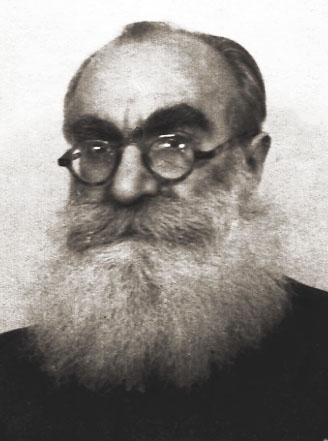Distinguished Zionist, politician, Doctor of Laws and social activist, Sommerstein gained extensive experience as an MP during the Second Republic, being a member of the First, Third, Fourth and Fifth Sejm terms.
A native of Hleszczewo near Trembowa (Eastern Poland’s Borderlands), Emil Sommerstein did not use his surname after his father, Braude, but took it after his mother. This was because his parents had not registered their marriage in the registry books, which was not unusual in the Jewish community. After completing his Cheder education, he began to attend the Higher Gymnasium in Ternopil and then the 5th Hetman Żółkiewski Gymnasium, which was evidence of his family’s assimilationist tendencies.
When he began his studies at the Faculty of Law at Jan Kazimierz University in Lwów (today’s Lviv), he became acquainted with the Jewish milieu that promoted Zionism, and he became involved with this political idea for the rest of his life. After graduating, he practised law in Lwów.
After 1918, when the Polish state restored its independence, Sommerstein’s political career gained momentum. First, he found himself in the leadership of the Zionist Organisation of Eastern Galicia, being at the same time a member of the Zionist Organisation in Poland, which he combined with his activity in the Zionist Democrat grouping “Ichud” in Galicia.
Political successes translated into professional aspirations – Sommerstein served as vice-president of the Lwów Bar Association and was active in the Supreme Bar Council. He also did not neglect his social activities, e.g. in such organisations as the Society of the House of Health for Jewish Academics, the Council of the Auxilium Academicum Judaicum or Keren ha-Jesod in Eastern Lesser Poland.
His greatest achievement in his political career was his work as an MP between 1922 and 1927 and between 1930 and 1939, i.e. he held this honour for almost the entire peaceful period of the Second Polish Republic, gaining great experience in this respect.
The outbreak of the Second War found him in Lwów, where he was arrested, being detained consecutively in the following prisons: Lwów, Kiev, Moscow, Saratov, Balashov. It was only in 1942 that he managed to establish contact by letter with Stanisław Kot, the Polish ambassador to the USSR, thanks to which, after two years of efforts, the Soviet authorities released him in 1944 and allowed him to return to Poland. Wanda Wasilewska also intervened in his case, inviting him to join the Union of Polish Patriots.
Sommerstein became a member of the Polish Committee of National Liberation in July 1944 and was one of the signatories of its Manifesto, although it is doubtful that he became an outspoken advocate of the communist system.
He left the country in 1946 and never returned to it.





